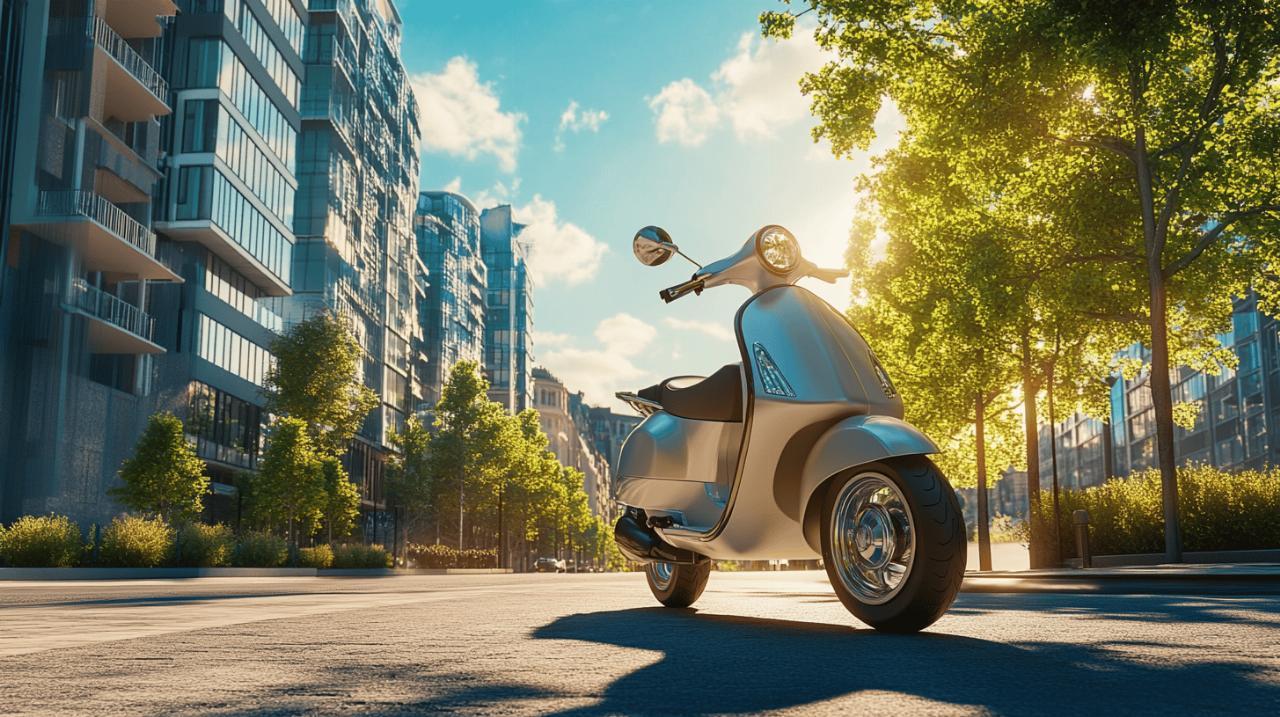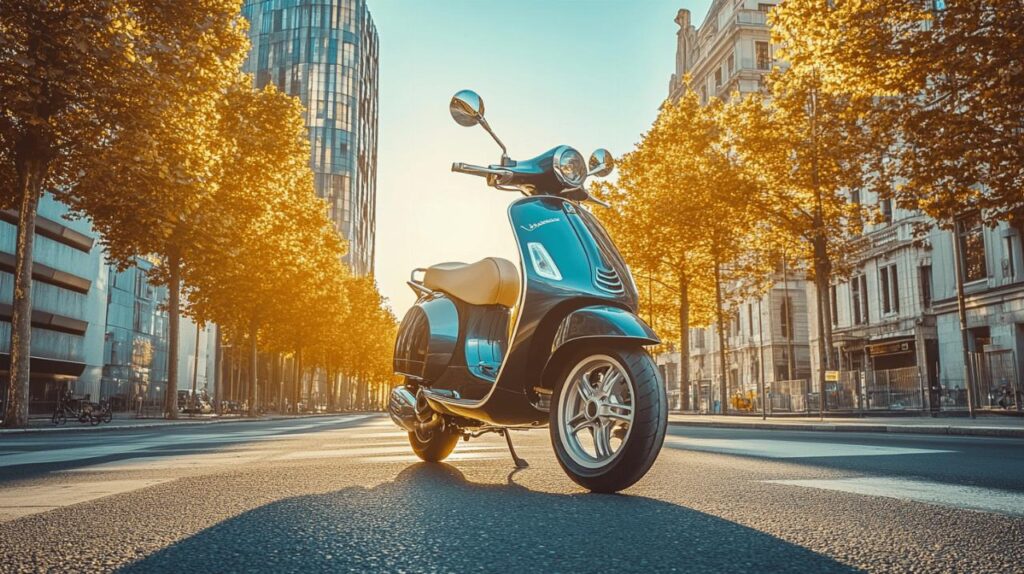Navigating the world of takeaway delivery on a scooter can be both exhilarating and demanding, particularly when it comes to understanding the insurance landscape. For those zipping through London streets with meals in tow, grasping the nuances of scooter insurance is not merely a matter of compliance but a cornerstone of protecting your livelihood and ensuring peace of mind. This guide unpacks the essential aspects of obligatory scooter insurance tailored specifically for food delivery couriers, from legal mandates to choosing the right policy for your needs.
Legal Requirements for Scooter Insurance in the UK
In the United Kingdom, riding a scooter without appropriate insurance is not only risky but also illegal. Every rider must have at least third-party insurance, which is the minimum legal requirement for any vehicle used on public roads. This type of cover ensures that if you are involved in an accident and cause damage to another person or their property, the costs are covered by your insurance policy. For takeaway couriers, this baseline protection is crucial, but it is far from sufficient when considering the specific demands of delivery work.
What cover is legally required for delivery riders?
Standard third-party insurance, often referred to as Social Domestic and Pleasure or SD&P cover, is designed for personal use and does not extend to commercial activities such as food delivery. When you are getting paid to transport goods, whether for Uber Eats, Deliveroo, or Just Eat, you are required by law to have hire and reward insurance, commonly abbreviated as H&R cover. This specialist policy acknowledges the business use of your scooter and provides the necessary legal protection when you are working. Without this, even if you hold a valid SD&P policy, you are technically riding uninsured during delivery hours, which exposes you to significant legal and financial risks.
The UK government has recently intensified efforts to crack down on unchecked account sharing among delivery riders, a practice that often results in uninsured individuals operating on the roads. This heightened scrutiny means that ensuring your insurance explicitly covers hire and reward activities is more important than ever. Riders who fail to secure this cover may face severe penalties, including fines, points on their licence, and even the seizure of their vehicle.
Penalties for riding without proper insurance
The consequences of riding without proper insurance are severe and can have long-lasting impacts on your ability to work and your financial stability. If caught riding without valid insurance, you could be fined up to one thousand pounds, receive six penalty points on your driving licence, or even face disqualification from driving. Additionally, your scooter may be seized and you will be required to pay a substantial fee to retrieve it. Beyond these immediate penalties, having a record of riding uninsured can significantly increase your future insurance premiums, making it even more expensive to get back on the road. For takeaway couriers who depend on their scooters for income, these repercussions can be devastating, underscoring the critical importance of maintaining compliant and comprehensive insurance at all times.
Types of Insurance Cover Available for Takeaway Couriers
Understanding the different types of insurance policies available is essential for selecting the right level of protection for your circumstances. While third-party insurance is the legal minimum, it offers limited protection and does not cover damage to your own vehicle or injuries you might sustain. For delivery riders, exploring more robust options can provide greater security and peace of mind.
Third-Party, Fire and Theft vs Comprehensive Policies
Third-party, fire and theft insurance builds on the basic third-party cover by adding protection for your scooter in the event of theft or damage caused by fire. This option is a step up from the minimum requirement and offers some reassurance if your vehicle is stolen or destroyed, though it still does not cover accidents where your scooter is damaged in a collision. For many couriers, this level of cover strikes a balance between affordability and protection, particularly if the value of the scooter is modest.
Comprehensive insurance, on the other hand, is the most complete form of cover available. It protects against a wide range of risks, including accidents, theft, vandalism, fire, and damage to your own vehicle regardless of who is at fault. For delivery riders who rely heavily on their scooters and cannot afford extended downtime, comprehensive cover is often the most sensible choice. It ensures that if something goes wrong, you can get back to work quickly without shouldering the full cost of repairs or replacement. Companies such as Zego, Lexham, MCE, and Tradex offer specialist comprehensive policies tailored to the needs of food couriers, integrating both SD&P and H&R cover into a single, seamless package.
Additional cover options for business use
Beyond the standard levels of insurance, there are several add-ons that can enhance your policy and provide additional layers of protection. Goods in transit cover, for instance, protects the food you are delivering, ensuring that if it is damaged or lost during transport, the cost is covered. Public liability insurance offers protection if a third party is injured or their property is damaged as a result of your delivery activities, which can be particularly valuable in busy urban environments. Personal accident insurance is another worthwhile consideration, covering medical expenses and loss of income if you are injured in an accident. While these extras are not legally required, they can offer significant peace of mind and financial security for couriers who face the inherent risks of navigating traffic and unpredictable weather conditions day in and day out.
Otto Scooter, based in London, integrates vehicle rental and tailored insurance into their service, offering electric moped and bike rentals alongside cost-effective insurance solutions. This approach simplifies the process for riders, ensuring they have both the vehicle and the appropriate cover in place from the outset. Their focus on sustainability through electric vehicles also aligns with the growing demand for eco-friendly transport options in urban delivery services.
Factors affecting your scooter insurance premium
The cost of scooter insurance for takeaway couriers can vary widely depending on a multitude of factors. Understanding what influences your premium is key to finding an affordable policy that does not compromise on essential cover. Insurers assess risk based on a range of criteria, from your personal driving history to the specifics of the work you undertake.
How mileage and experience impact your costs
One of the most significant factors affecting your insurance premium is the number of miles you cover each week. Couriers who work full-time and rack up high mileage are statistically more likely to be involved in an accident, which increases the risk for insurers and, consequently, the cost of your policy. Your age and driving experience also play a crucial role. Younger riders or those with less experience on the road typically face higher premiums, as they are considered higher risk. Conversely, riders with a clean driving record and several years of experience may benefit from lower rates.
The areas in which you operate can also influence your insurance costs. Delivering in central London, where traffic is dense and the likelihood of accidents or theft is higher, will generally result in a more expensive premium than working in quieter, suburban areas. Insurers also take into account the type of vehicle you ride, with high-performance or more expensive scooters often attracting higher premiums due to the increased cost of repairs or replacement.
Getting the Best Quote for Delivery Work
To secure the best insurance quote for your delivery work, it is essential to compare policies from multiple providers. Online comparison tools can be invaluable, allowing you to quickly assess the cost and coverage of different insurers. When comparing quotes, do not focus solely on the price. Examine the level of cover provided, the excess you will be required to pay in the event of a claim, and any additional benefits or add-ons included in the policy. Some insurers offer flexible payment options, such as pay-as-you-go schemes, which can be particularly advantageous for couriers who work irregular hours. Zego, for example, offers pay-as-you-go insurance that covers you only when you are actively working, with rates starting from fifty pence per hour for scooter riders with SD&P cover. This model can be more cost-effective for those who work fewer than twenty hours a week, while those with more consistent schedules may find better value in a thirty-day or annual policy.
It is also worth noting that some insurers use telematics, such as Zego Sense, to assess your driving style and adjust your premium accordingly. Safe, responsible riding can result in lower costs over time, rewarding couriers who take care on the road. Always ensure that the insurer you choose is authorised and regulated by the Financial Conduct Authority, providing you with the assurance that your policy is legitimate and your claims will be handled fairly.
Special Considerations for Electric Scooters in Delivery Services
The rise of electric scooters in the delivery sector has introduced a new dimension to the insurance landscape. As more couriers turn to electric vehicles for their environmental benefits and cost savings, it is vital to understand the specific insurance requirements and considerations for these eco-friendly machines.
Insurance requirements for electric vehicles
Electric scooters are subject to the same legal insurance requirements as their petrol-powered counterparts. You must have at least third-party insurance, and if you are using your electric scooter for delivery work, hire and reward cover is mandatory. However, some insurers have begun to offer policies specifically tailored to electric vehicles, recognising their unique characteristics and the different risks they may present. When seeking insurance for an electric scooter, it is important to confirm that the policy explicitly covers electric mopeds, as not all insurers automatically include them under standard scooter insurance.
Otto Scooter, with their focus on electric vehicle rental and integrated insurance, provides a seamless solution for riders looking to embrace greener transport options. Their tailored insurance ensures that electric moped rentals are fully covered, allowing couriers to benefit from lower running costs without sacrificing the security of comprehensive protection. Electric vehicles also tend to have lower maintenance costs and fewer mechanical issues than traditional scooters, which can be a consideration when evaluating the overall cost of ownership and insurance.
Protecting your investment in eco-friendly transport
Investing in an electric scooter represents not only a commitment to sustainability but also a significant financial outlay. Ensuring that your investment is adequately protected through comprehensive insurance is essential. Electric scooters can be attractive targets for theft, particularly in urban areas, making theft cover a critical component of any policy. Additionally, the cost of replacing or repairing an electric vehicle can be substantial, especially if the battery or motor is damaged. Comprehensive insurance that covers accidental damage, theft, fire, and vandalism provides the broadest protection and ensures that you are not left out of pocket if something goes wrong.
For couriers who work with companies like Uber Eats, Deliveroo, or Just Eat, demonstrating that you have the correct insurance in place is a prerequisite for accepting delivery jobs. These platforms require proof of hire and reward cover, and failure to provide it can result in suspension or termination of your account. By choosing a specialist insurer that understands the unique needs of electric vehicle users and delivery riders, you can ensure that your cover is both compliant and comprehensive, allowing you to focus on your work with confidence.
In conclusion, understanding and securing the right scooter insurance is an indispensable part of working as a takeaway courier in the UK. From meeting legal requirements to selecting the most appropriate level of cover and considering the specific needs of electric vehicles, every aspect of your insurance plays a vital role in protecting your livelihood. By taking the time to compare policies, understand the factors that influence your premium, and choose a reputable insurer, you can navigate the roads of London and beyond with the assurance that you are fully protected.

